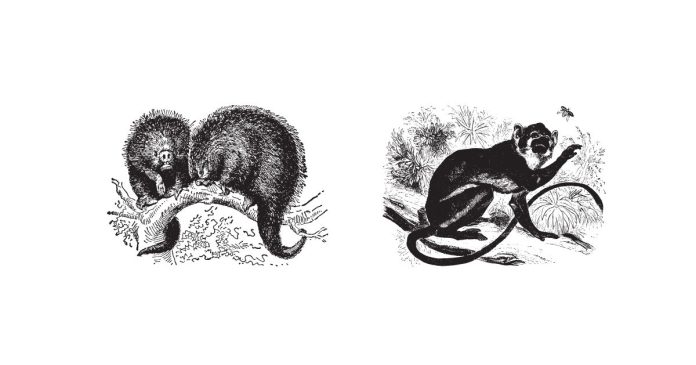Have you ever wondered, what is ‘possum’ in Spanish? While the possum is a well-known marsupial native to certain regions, particularly in North America, it may not be as familiar in other parts of the world. When it comes to translating animal names into different languages, there can be surprising differences, and the possum is no exception. In this blog post, we’ll explore the Spanish word for “possum,” where this animal is found, and how it’s viewed across different Spanish-speaking countries.
The Spanish Word for ‘Possum’
In Spanish, the word for “possum” is typically “zarigüeya.” This term is widely used in most Spanish-speaking countries to refer to the nocturnal, tree-dwelling marsupial known for its distinctive appearance, including its long, prehensile tail and rat-like face.
While “zarigüeya” is the most common translation, it’s important to note that the exact term might vary slightly depending on the region. In some countries, people might also use the term “oposum,” especially in areas where English influence is stronger.
What is a Possum?
Before diving deeper into its Spanish translation, let’s first understand what a possum is. Possums, which are native to Australia, and opossums, a related species found in North America, are both marsupials. They belong to the scientific order Didelphimorphia, and while they are often confused with each other due to their similar appearance and name, they come from different parts of the world.
- Possum: Typically refers to the Australian variety of marsupials. These animals are smaller and have a bushy tail.
- Opossum: Refers to the North American species, known for their prehensile tail and scavenger habits. The term “opossum” is often used in the U.S.
In both cases, these creatures are known for their ability to adapt to a variety of environments and their unique behaviors, like “playing dead” (a defense mechanism known as “playing possum”).
Cultural Perspectives on Possums in Spanish-Speaking Countries
In various Spanish-speaking countries, the term “zarigüeya” is used for both the North American and the Australian species, though the cultural associations and perceptions of these animals can differ. In some regions, the possum is seen as a nuisance due to its scavenging habits, while in others, it might be admired for its resourcefulness and adaptability.
For example, in Mexico, the zarigüeya is often seen as a cunning, nocturnal creature, while in Argentina, it might be perceived more as a part of the wildlife in rural areas.
How to Use ‘Zarigüeya’ in Sentences
Here are a few examples of how you might use the word “zarigüeya” in sentences:
- “La zarigüeya vive en los árboles y sale principalmente de noche.”
(“The possum lives in trees and comes out mainly at night.”) - “En el campo, las zarigüeyas son comunes y a menudo se alimentan de frutas caídas.”
(“In the countryside, possums are common and often feed on fallen fruit.”)
Other Fun Animal Translations
While we’re on the topic of animal translations, here are a few other interesting animal names in Spanish:
- Raccoon: Mapache
- Armadillo: Armadillo (same as in English!)
- Owl: Búho or Lechuza (depending on the region)
- Raven: Cuervo
In summary, the translation of “possum” into Spanish is “zarigüeya,” though you may come across the term “oposum” in some regions due to the influence of English. While these fascinating marsupials are native to different parts of the world, their name and cultural significance can vary across Spanish-speaking countries. The next time you’re in a Spanish-speaking country, you’ll be able to confidently refer to this nocturnal creature as “zarigüeya” — and impress your friends with your bilingual animal knowledge!


